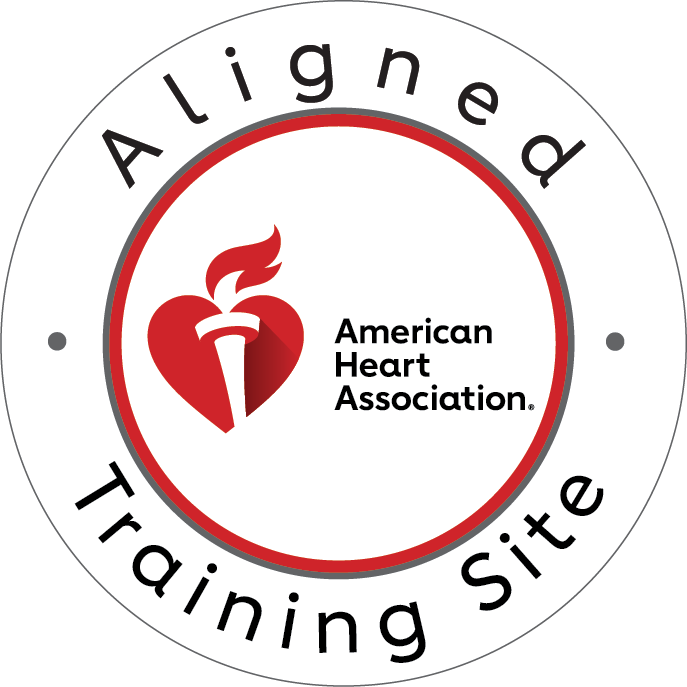In the fast-paced world of emergency medicine, every second counts. Nowhere is this more evident than in pediatric emergencies, where swift and precise action can mean the difference between life and death. Imagine a scenario where a child suddenly goes into cardiac arrest or experiences severe respiratory distress – in these critical moments, having the right skills and training can make all the difference.
Hook: According to the American Heart Association, nearly 16,000 children under the age of 18 experience out-of-hospital cardiac arrests each year in the United States alone. These alarming statistics underscore the urgent need for highly trained medical professionals capable of providing immediate and effective care to pediatric patients in crisis.
Overview: Pediatric Advanced Life Support (PALS) certification is designed to equip healthcare providers with the knowledge and skills necessary to respond to pediatric emergencies with confidence and competence. Developed by the American Heart Association, PALS training goes beyond basic life support techniques, focusing specifically on advanced interventions tailored to the unique needs of pediatric patients.
Understanding PALS Certification:
PALS certification is more than just a credential – it’s a commitment to excellence in pediatric emergency care. Developed in collaboration with leading experts in pediatric medicine, PALS courses are designed to provide healthcare providers with the knowledge, skills, and confidence needed to effectively manage pediatric emergencies in various clinical settings.
At its core, PALS training focuses on the recognition and management of pediatric respiratory and cardiovascular emergencies, including cardiac arrest, shock, and respiratory failure. Participants learn to assess and stabilize critically ill or injured children using a systematic approach that emphasizes early intervention and evidence-based practices.
A Brief History:
The origins of PALS can be traced back to the early 1980s when medical professionals recognized the need for specialized training in pediatric resuscitation. Prior to the development of PALS guidelines, pediatric emergency care often relied on adult-focused protocols, which were not always suitable for pediatric patients.
In response to this need, the American Heart Association (AHA) launched the PALS program, with the first official guidelines published in 1988. Since then, PALS has evolved to reflect the latest advancements in pediatric resuscitation science and clinical practice, ensuring that healthcare providers are equipped with the most up-to-date knowledge and techniques.
Skills and Knowledge Covered:
PALS certification courses cover a wide range of topics essential for managing pediatric emergencies effectively. Participants learn about pediatric assessment, basic life support (BLS), advanced airway management, pharmacology, and electrical therapy, among other critical skills.
One of the key components of PALS training is the use of high-fidelity simulation scenarios, which allow participants to practice their skills in a realistic clinical environment. These simulations enable healthcare providers to hone their decision-making abilities and enhance teamwork and communication skills, all of which are vital during high-stress emergency situations.
Identifying Target Audience:
While PALS certification is invaluable for anyone involved in the care of pediatric patients, certain healthcare professionals stand to benefit most from this specialized training. Identifying the target audience for PALS certification is essential for ensuring that those who need it most are equipped with the skills and knowledge necessary to respond effectively to pediatric emergencies.
A. Healthcare Providers Directly Involved in Pediatric Patient Care:
The primary audience for PALS certification includes healthcare providers who are directly involved in the care of pediatric patients in various clinical settings. This includes nurses, physicians, and other allied health professionals working in emergency departments, pediatric intensive care units (PICUs), pediatric wards, and ambulatory care settings.
Nurses play a crucial role in pediatric emergency care, serving as frontline responders and patient advocates. PALS certification equips nurses with the advanced assessment and intervention skills needed to recognize and manage pediatric emergencies effectively. Whether administering medications, performing life-saving interventions, or coordinating care with other members of the healthcare team, PALS-certified nurses are essential members of the pediatric care team.
Physicians specializing in pediatrics, emergency medicine, or critical care also benefit significantly from PALS certification. These healthcare providers are often responsible for leading resuscitation efforts and making critical decisions in high-pressure situations. PALS training provides them with the knowledge and confidence needed to provide evidence-based care and improve patient outcomes in pediatric emergencies.
B. Nurses Working in Emergency Departments, Pediatric Units, or Ambulatory Care Settings:
Nurses working in emergency departments, pediatric units, or ambulatory care settings are frequently called upon to care for pediatric patients presenting with a wide range of acute illnesses and injuries. PALS certification is particularly valuable for these nurses, as it equips them with the specialized skills and knowledge needed to manage pediatric emergencies confidently.
In emergency departments, nurses are often the first point of contact for pediatric patients seeking urgent medical care. PALS training enables them to assess and triage patients quickly, initiate life-saving interventions, and communicate effectively with other members of the healthcare team. In pediatric units and ambulatory care settings, PALS-certified nurses play a vital role in providing ongoing monitoring and support for pediatric patients with complex medical needs.
C. Physicians Specializing in Pediatrics, Emergency Medicine, or Critical Care:
Physicians specializing in pediatrics, emergency medicine, or critical care are at the forefront of pediatric emergency care, responsible for leading resuscitation efforts and providing advanced medical interventions. PALS certification is essential for these physicians, as it ensures that they have the skills and knowledge needed to deliver high-quality care to pediatric patients in crisis.
In pediatric emergency departments and intensive care units, physicians rely on their expertise in pediatric resuscitation to stabilize critically ill or injured children and initiate appropriate treatment protocols. PALS training enhances their ability to recognize and manage life-threatening conditions such as cardiac arrest, respiratory failure, and shock, ultimately improving patient outcomes and survival rates.
Why PALS Matters:
Pediatric Advanced Life Support (PALS) certification is not just another credential – it’s a lifesaving toolkit that equips healthcare professionals with the knowledge, skills, and confidence needed to respond effectively to pediatric emergencies. In this section, we’ll delve into why PALS matters and why it’s essential for healthcare providers working with pediatric patients.
A. Unique Challenges of Pediatric Emergencies:
Pediatric emergencies present unique challenges that require specialized training and expertise to manage effectively. Unlike adults, children have distinct physiological differences that can impact their response to illness and injury. Pediatric patients require careful assessment, age-appropriate interventions, and tailored treatment protocols to ensure optimal outcomes.
One of the most critical challenges in pediatric emergencies is the rapid deterioration of a child’s condition. Pediatric patients can deteriorate quickly, requiring prompt recognition and intervention to prevent further deterioration and improve outcomes. PALS certification teaches healthcare providers to recognize early warning signs of deterioration and intervene promptly to stabilize the patient’s condition.
B. Life-Saving Interventions Taught in PALS Courses:
PALS courses cover a wide range of life-saving interventions designed to address common pediatric emergencies. Participants learn essential skills such as pediatric assessment, airway management, cardiac rhythm interpretation, and pharmacological interventions. These interventions are based on the latest evidence-based guidelines and best practices in pediatric resuscitation.
One of the key components of PALS training is the emphasis on teamwork and communication. Healthcare providers learn to work together seamlessly as a team to coordinate care, prioritize interventions, and optimize patient outcomes. Effective communication is essential during high-stress situations, ensuring that everyone on the healthcare team is on the same page and working towards a common goal – saving the life of the pediatric patient.
C. Case Studies and Real-Life Examples:
To illustrate the importance of PALS certification, let’s consider a hypothetical scenario: a 5-year-old child presents to the emergency department with signs of respiratory distress. As the healthcare team springs into action, a PALS-certified nurse quickly assesses the child’s airway, breathing, and circulation. Recognizing the severity of the child’s condition, the nurse initiates oxygen therapy and prepares for advanced airway management if needed.
Meanwhile, a PALS-certified physician arrives on the scene and leads the resuscitation efforts. Using their advanced knowledge of pediatric resuscitation, the physician guides the team through the appropriate interventions, including administering medications, defibrillation, and synchronized cardioversion as necessary. Thanks to their timely and coordinated efforts, the child’s condition stabilizes, and they are transferred to the pediatric intensive care unit for further management.
This scenario highlights the critical role that PALS-certified healthcare providers play in pediatric emergencies. By equipping healthcare professionals with the knowledge and skills needed to respond effectively to pediatric emergencies, PALS certification saves lives and improves patient outcomes.
Benefits of PALS Certification:
PALS certification offers a multitude of benefits for healthcare professionals working with pediatric patients. Beyond just acquiring a credential, PALS training enhances skills, improves patient outcomes, and opens up new career opportunities. In this section, we’ll explore the various benefits of PALS certification in detail.
A. Enhanced Skills and Confidence:
One of the primary benefits of PALS certification is the acquisition of advanced skills and knowledge in pediatric emergency care. Participants learn to assess and manage a wide range of pediatric emergencies, including cardiac arrest, respiratory failure, and shock. Through hands-on training and simulation scenarios, healthcare providers gain the confidence to respond effectively to high-stress situations and make critical decisions under pressure.
PALS certification also provides healthcare professionals with the opportunity to refresh and reinforce their existing skills. Regular recertification ensures that providers stay up-to-date with the latest guidelines and best practices in pediatric resuscitation, further enhancing their competence and confidence in managing pediatric emergencies.
B. Improved Patient Outcomes:
Studies have shown that patients treated by PALS-certified healthcare providers have better outcomes and higher survival rates in pediatric emergencies. PALS training emphasizes early recognition and intervention, which are crucial for optimizing patient outcomes and preventing complications. By equipping healthcare professionals with the skills and knowledge needed to provide timely and appropriate care, PALS certification helps save lives and improve the quality of care for pediatric patients.
C. Career Advancement Opportunities:
PALS certification can also open up new career opportunities and advance professional development for healthcare providers. Many hospitals and healthcare organizations require PALS certification for positions involving pediatric patient care, such as working in emergency departments, pediatric intensive care units, or pediatric clinics. By obtaining PALS certification, healthcare professionals demonstrate their commitment to providing high-quality care to pediatric patients, enhancing their employability and career prospects.
Additionally, PALS certification may lead to specialized roles or leadership positions within the healthcare system. Healthcare providers with PALS certification are often recognized as experts in pediatric resuscitation and may be called upon to train and mentor their colleagues or participate in quality improvement initiatives related to pediatric emergency care.
D. Legal and Ethical Considerations:
From a legal and ethical standpoint, PALS certification is essential for healthcare professionals responsible for providing care to pediatric patients. In the event of a pediatric emergency, healthcare providers must be able to demonstrate that they have the necessary training and expertise to manage the situation effectively. PALS certification serves as tangible evidence of a healthcare provider’s competence in pediatric resuscitation, helping to mitigate potential legal risks and ensure patient safety.
Conclusion:
In conclusion, PALS certification is not just a credential – it’s a lifesaving edge for healthcare professionals working with pediatric patients. By equipping providers with advanced skills and knowledge in pediatric emergency care, PALS certification improves patient outcomes, enhances confidence, and opens up new career opportunities.
Whether you’re a nurse in an emergency department, a physician in a pediatric intensive care unit, or a paramedic responding to pediatric emergencies in the field, PALS certification is essential for ensuring that you’re prepared to provide high-quality care to pediatric patients when every second counts.
If you’re ready to take your pediatric emergency skills to the next level, consider enrolling in CPR Tampa’s PALS certification course today. As an American Heart Association training site, CPR Tampa offers stress-free and hands-on training in PALS certification in Tampa, ensuring that you’re well-prepared to respond to pediatric emergencies with confidence and competence.
Don’t wait until the next pediatric emergency strikes – enroll in CPR Tampa’s PALS certification course and give yourself the lifesaving edge you need to make a difference in the lives of pediatric patients.
Remember, CPR Tampa also offers a range of other certification courses, including CPR certification and PALS certification in Tampa, making it your one-stop destination for all your emergency medical training needs. Visit CPR Tampa’s website today to learn more and secure your spot in an upcoming course.
Save lives. Gain confidence. Enroll in PALS certification and CPR certification in Tampa with CPR Tampa today!




